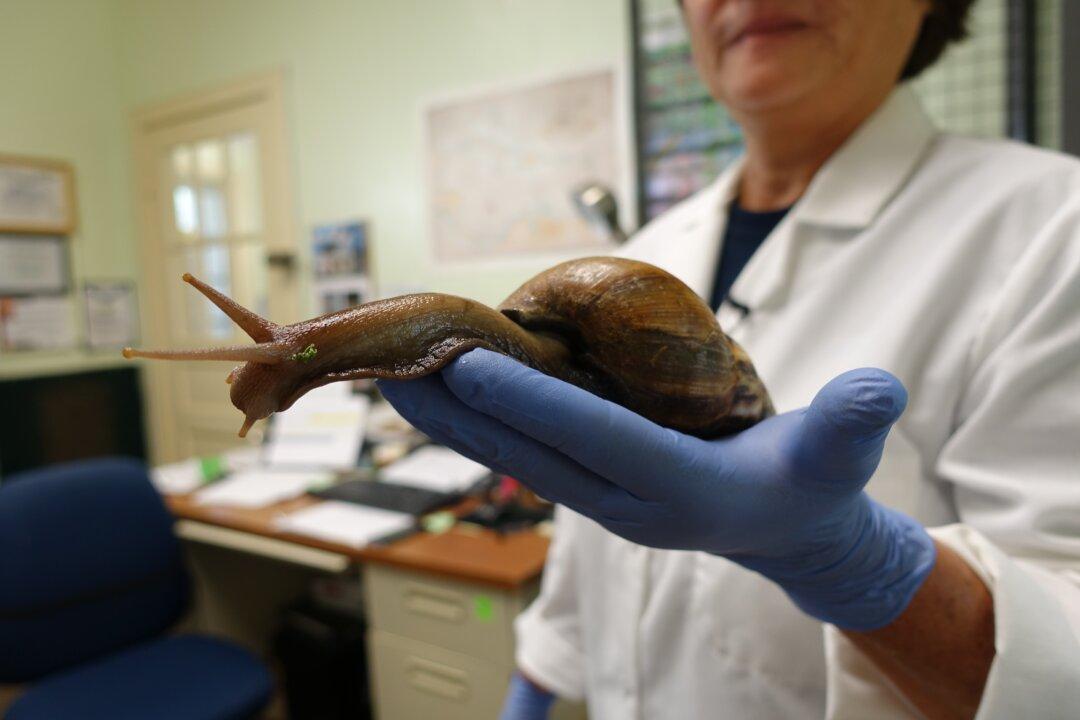A community in Broward County, Florida, is under quarantine by state officials in a bid to eradicate a species of invasive giant African land snail that can transmit a parasite and also do massive amounts of agricultural damage.
The giant snails, which can grow up to 8 inches in length, were found in Miramar earlier in June, officials said. On Tuesday, the Florida Department of Agriculture and Consumer Services ordered the community to be placed under quarantine.





